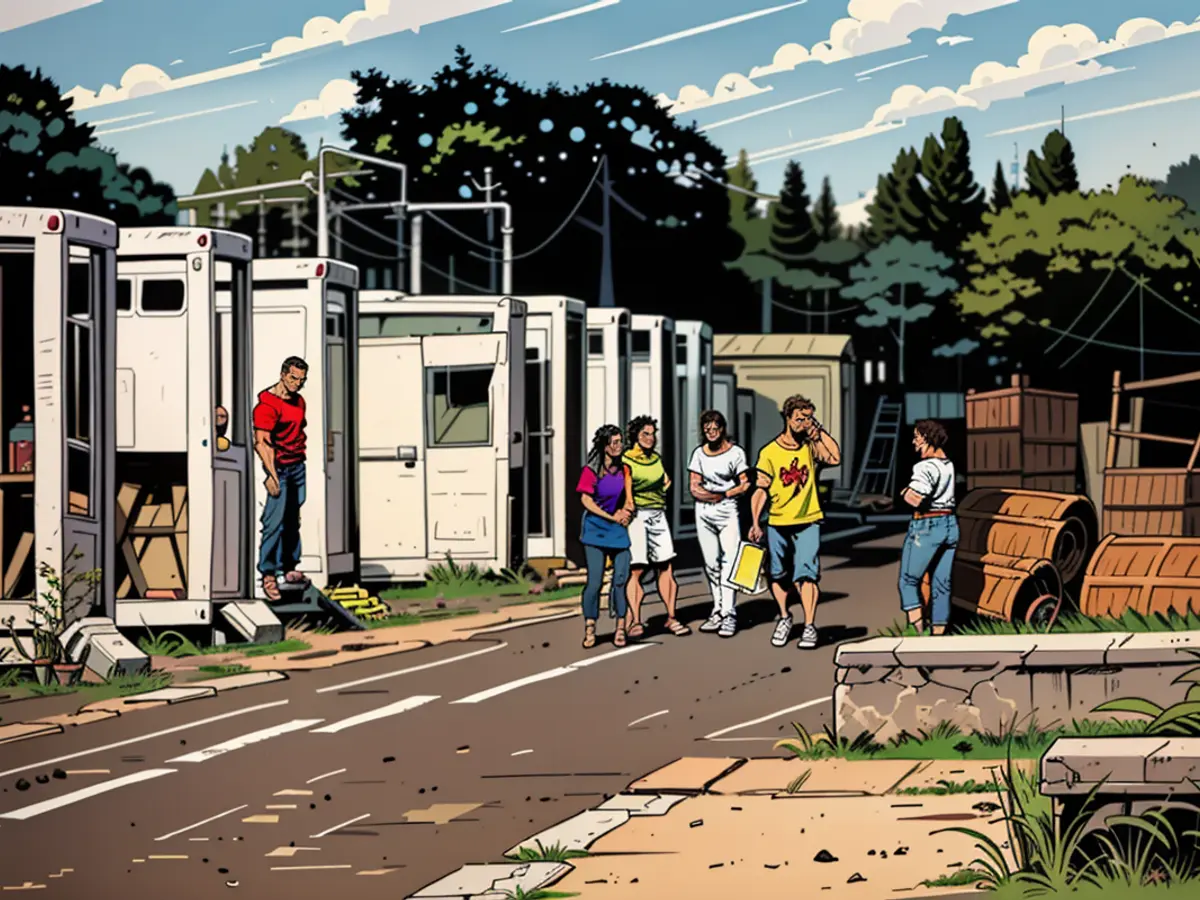EU Maintains Border Rejection Stance, Mihalic Deems It Almost Impracticable
The conversation revolves around individuals classified as refugees under the EU's Dublin Regulation. This legislation dictates that the member state responsible for an asylum application is the one where the refugee initially entered EU territory. However, Germany intends to prevent these individuals from entering the country further under this regulation.
In a podcast, CDU politician Frei asserted that this action aligns with German law. Meanwhile, CSU interior expert Lindholz voiced concerns about the Dublin system's effectiveness, suggesting that national law should take precedence. Lindholz argued that the Dublin Regulation does not explicitly prohibit returns, a viewpoint not universally shared among legal professionals.
On the other hand, Green interior expert Mihalic contended that asylum seekers cannot be sent back at the border according to European law. As the responsible member state must be determined within the asylum process, and this is often complex, implementing returns at the border would be impractical.
Reports suggest that there is sympathy for the returns concept within the FDP faction. They propose returning refugees at the German border if Germany is not responsible for the asylum process, a stance they plan to uphold at an upcoming retreat.
The issue of returns was discussed during Tuesday's consultations on migration policy among the federal government, state governments, and CDU/CSU. No clear decisions were reached, with further discussions planned.
The president of the German City Mayors' Association, Lewe, commended the ongoing discussions, advocating for speedier and simpler Dublin procedures. He emphasized the importance of transferring asylum seekers to the EU countries responsible for them.
The German government has announced its intention to withdraw all social benefits from individuals in the Dublin procedure if the responsible EU country agrees to their return from Germany. In support of this measure, FDP migration expert Stamp suggested providing only flight tickets and a small sum of money upon arrival in the destination country.
Regarding the Federal Constitutional Court's ruling that the state must guarantee a minimum living standard for every person in Germany, Stamp proposed considering an amendment to the Basic Law if necessary. However, he clarified that he was expressing these opinions independently of his role as the federal government's special envoy for migration agreements.
Lastly, the German Children's Aid Organization voiced strong concerns about withdrawing social benefits, warning that many children and young people could be affected. They expressed concerns that leaving children without funds for essentials such as food, medicine, and hygiene would show disregard for children's rights and contradict humanitarian principles.
Despite the complexities in determining the responsible member state within the asylum process, implementing returns at the border under the Dublin Regulation is considered impractical due to its intricacies. Additionally, while some, like the FDP faction, support returning refugees at the German border if Germany is not responsible for the asylum process, this viewpoint faces opposition from legal professionals who argue that the Dublin Regulation does not explicitly prohibit returns.








